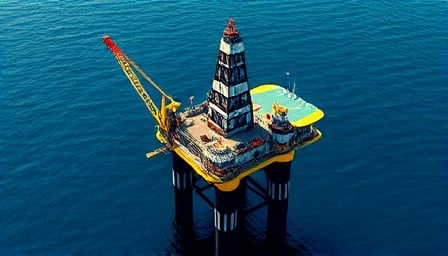Equinor’s Earnings Take a Hit: A Wake-Up Call for the Energy Giant
Equinor ASA, once a shining star in the energy sector, has just reported a dismal second-quarter income of $1.32 billion, a staggering 1.5% decline from the previous year. The company’s revenue has also taken a hit, plummeting by 1.5% during the same period. This is not the kind of performance investors were expecting from a leading energy player like Equinor.
But here’s the kicker: despite this lackluster performance, Equinor has announced plans to proceed with the third tranche of its 2025 share buy-back program. This move raises eyebrows, as it seems to prioritize shareholder interests over the company’s struggling bottom line. Is this a case of Equinor putting its own interests ahead of its investors'?
On the bright side, Equinor has declared a cash dividend for the second quarter, with a payment date set for November 26. This move may provide some relief to investors, but it’s a Band-Aid on a bullet wound. The real question is: what’s behind Equinor’s decision to press on with its share buy-back program despite the company’s financial struggles?
The answer lies in the company’s significant impairment of $955 million for its Empire Wind project. It seems that U.S. wind farm regulations and tariffs have taken a toll on Equinor’s operations. This is a clear warning sign that the company’s business model may be due for a rethink.
Here are the key takeaways from Equinor’s second-quarter earnings report:
- Second-quarter income: $1.32 billion (down 1.5% from previous year)
- Revenue: 1.5% decline during the same period
- Share buy-back program: third tranche to proceed despite financial struggles
- Cash dividend: declared for second quarter, with payment date set for November 26
- Impairment: $955 million for Empire Wind project due to U.S. wind farm regulations and tariffs
It’s time for Equinor to take a hard look at its business model and make some tough decisions. The company’s investors deserve better than a lackluster performance and a questionable share buy-back program. The question is: will Equinor’s leadership take the necessary steps to turn the company around, or will it continue to prioritize short-term gains over long-term sustainability?
